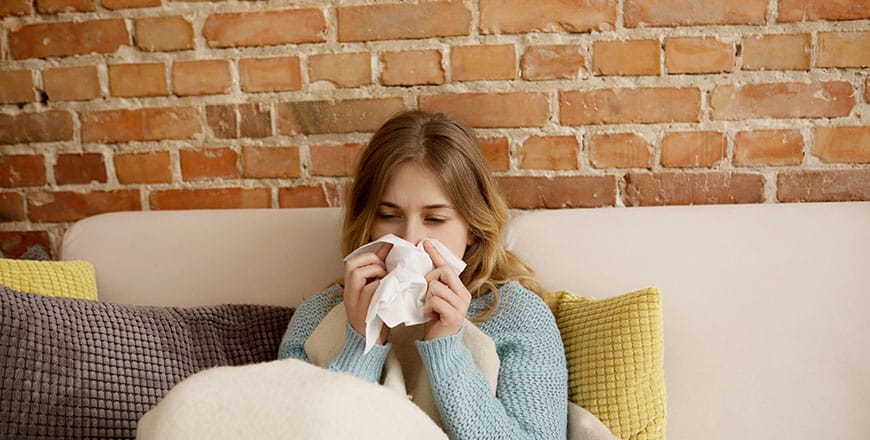Music has been part of life since the golden ages. Before, it used to be a symbol of celebration and festivity of tribes after winning a war or a battle. It is also used to welcome visitors from different places. But, commonly, music is used as an expression of love and promise. Now, music had so much evolved into different purpose and means. It is now an alternative to therapy and cure. Surprisingly true that it is now being associated with the possibility that music can help you deal with allergies, sinus and even asthma. You can ask your allergy specialist about this and how it will benefit you as you deal with that physical disease.
Modify Your Lifestyle
So before you consider adopting music as your alternative cure for your condition, why not look into some of your startup options that can support your battle against seasonal allergies and sinusitis.
Sometimes it’s your diet that plays a major impact on your health every day that can greatly affect the allergies or conditions that you may have. Doctors and nutrition experts would recommend you to include a nutritious diet plan rich in antioxidants and omega-3 components that are effective in relieving your allergies and sinus attacks through the season.
Consider the following:
Increase your liquid intake.
Having more fluids in your body is highly beneficial than that of oral medications. Every time you sneeze and blow your nose can lead to dehydration and can even irritate more the symptoms of your allergies. By just refueling your body with water and other healthy fluids will easily enable your body to battle not just your allergies but other diseases as well.
Add more Spice.
- Ginger: its anti-inflammatory abilities can help the immune system to battle inflammation that may worsen your allergic reactions.
- Onion: aside from making you cry every time to chop it, cooking it fresh can actually benefit your sinus and it has natural antihistamine properties that reduce nasal blockage and inflammation.
- Garlic: a natural antibiotic can reduce inflammation, congestion, and supports the immune system.
- Cayenne pepper: supports the air circulation in your sinus and reduces the chances of nasal congestion.
Embrace Vitamin C.
It does not only strengthen your immune system but also works as an antihistamine in allergies because of its sturdy antioxidant features. Here are your best sources of Vitamin C:
- Oranges, strawberries, grapefruit
- Bell peppers, kale, tomatoes, spinach, broccoli
Add Music Into It
Have you heard of Music Therapy? It is a process where a music therapist uses music that triggers self-awareness enabling a healthier spiritual, mental, and emotional disposition. It creates self-expression, learning, communication, and personal improvement and with that alone, you can already realize how powerful music is.
That alone is why music had been adopted as a treatment not only for common ailments and diseases but to allergies and asthma as well. You may wonder that allergies are not an emotional affliction, but just like any other serious conditions, it can greatly affect your mental state. If you think that allergies are just simple, for others it is a disorder that haunts them for the rest of their lives making them depressed and anxious. This is why music therapy plays a vital role in improving that mindset.
The power of music can do the following:
- It works as an anti-histamine that lowers the symptoms of allergic reactions.
- A feel-good, relaxing or classical music can slash negative thoughts and feelings giving less chances for allergens to attack.
- It’s a good diversion. As your thoughts focus on what makes you feel good and what sounds elevating to your emotions that’s where your allergies are less likely to manifest.
Although it is just an alternative, music is still one of the options you can have to mitigate the burdens of allergies, sinusitis and even asthma. But always consult your allergy clinic to be given a more professional assistance about your other possible options aside from oral medication. If music uplifts your mental and spiritual well-being, then, by all means, continue that routine. If you think that it makes you feel better and less unproductive, stick to your music. And if you feel like it’s your best fallback from the complexities of your allergy condition, then just keep listening. For whatever that makes you relieved and better, embrace it and stay committed to it.















